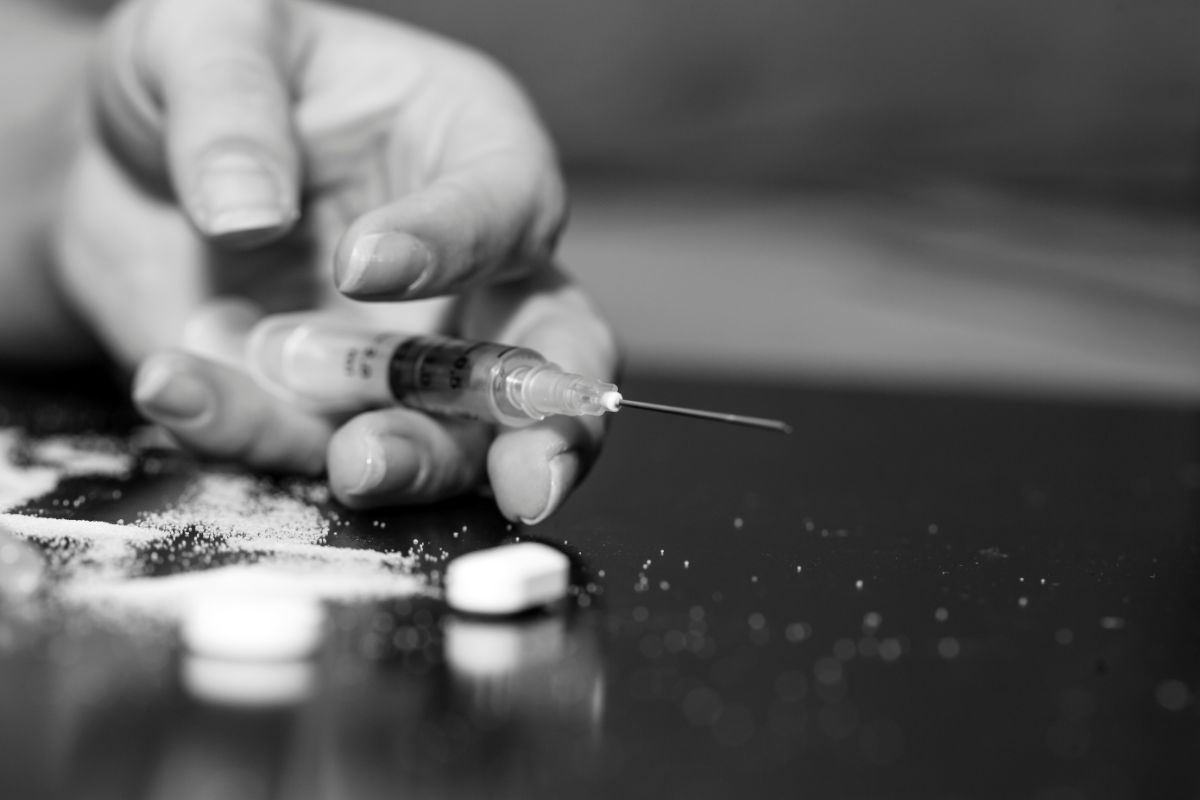Addiction is a brain disease that can affect anyone. It’s important to discuss the different factors that can make you more likely to succumb to addiction.
In this article, I hope that you can gain a better understanding of what causes addiction, and whether genetics play a part.

Truthfully, there are genetic factors involved that may get passed down through your family.
At least half of someone’s likelihood of struggling with addiction can be linked to their genetic factors.
However, this only means that you have a higher likelihood of struggling with addiction if your family has a history of struggling with it.
Genetics And Addiction
Due to addiction being a brain disease, a person with a family history of addiction may have a risk that is between 40 and 60 percent higher than a person without this family history.
However, it is also known that there are five mental health illnesses that can also be hereditary, and if they are left untreated, substance abuse may become more likely to help manage your symptoms.
If you have undiagnosed ADHD, autism, bipolar disorder, depression, or schizophrenia, you are at a higher risk than others.
This is why it’s vital that you contact someone for help if you’re struggling with any of these mental illnesses.
By getting treatment, you have a lower chance of struggling with addiction.
Men unfortunately have a higher chance of getting addicted to illicit substances and becoming dependent on them.
There are also multiple personality traits that can influence a struggle with addiction, especially if you have impulsive tendencies and have non-conforming issues.
While genetics do play a considerable factor in understanding how addiction is passed down, there are also other factors that should be taken into consideration.
Environmental Factors
Just because genetics play a role in whether you may struggle with addiction, it doesn’t mean that your environment won’t shape how you view substances too.
As an example, say your parents have issues with addiction.
You may find that you won’t have addiction issues due to how you perceive their struggles with addiction, and you may never have this issue.
It’s likely that it may even skip a few generations. When you’re growing up, your peers may be a more significant factor than your parents.
When teenagers want to fit in, they may get addicted to substances depending on their environmental factors.
Even without a family history, you can still get addicted depending on your peers, whether you’re supervised by adults, or if you have issues with social skills.
You may also find yourself with more likelihood of addiction issues if you’re exposed to harmful situations in your early childhood.
Depending on how your childhood is, you may find that you struggle with substance abuse to cope with any trauma you have dealt with.
Trauma And Addiction

Some people may turn to drugs and alcohol as a coping mechanism to handle untreated trauma. This is especially true for children and teenagers.
You may find that if you’ve dealt with significant trauma in your past that you might find that you’re self-medicating to cope with difficult situations and bad memories.
You may think that trauma has to be linked to physical abuse, but there are many factors that can link trauma to addiction.
If you were emotionally abused, or even neglected or abandoned, you may turn to self-medication to numb your emotions.
While trauma is more linked to violence and war, there are so many factors at play that could cause you to struggle with coping.
If you have a family history of substance abuse and have experienced trauma, it may become more of a challenge to avoid substances.
This is why it’s essential that if you are struggling with past trauma that you contact someone for help if you’re struggling.
Drugs and alcohol (see also ‘Alcohol And Behavior‘) are not the best choices for self-medication without getting advice from your doctor first.
Getting Help For Addiction
If your family does have a history of addiction, you should avoid treating it as a taboo subject.
Open honesty about addiction and abandoning the taboo can be a great method to prevent your family from struggling with substance abuse.
You should also consider other mental illnesses that run in your family and discuss it with your children, so they are aware of what may affect them in the future.
By communicating with your family about mental health and addiction, you can get a better understanding of how to face your issues in the future.
It is also vital that you discuss your issues with family and friends to create a better understanding of your struggles with addiction and approach them for help.
While addiction may have been taboo in the past, the inability and shame of discussing it has had a negative impact on everyone who has struggled in the past.
Due to the open communication of mental health issues that have been growing over the years, getting help for addiction can be attainable.
There are many support groups now available to men who struggle with addiction, and there are a new wealth of resources available.
If you fear that you’re struggling with addiction and want to get better for yourself and your family, you should either contact your doctor or join a support group.
Final Thoughts
Addiction does have genetic factors at play, but environmental factors and trauma also play a significant role in how you may struggle with this disease.
By communicating with your family about mental health issues and past struggles with substance abuse, you may be able to get better help in treating your own addiction or if you’re finding help for a loved one.
While it may feel shameful to talk about addiction, there are numerous anonymous support groups available and your doctor can also help you find help.
With an understanding of how addiction occurs and affects you, you can find it easier than ever before to get help and understand how addiction works.
- Understanding Male Reproductive Health: A Complete Guide - February 2, 2025
- Simple Healthy Skin Habits for Radiant Skin - December 6, 2024
- Unlocking the Connection Between Nutrition and Mental Health - December 3, 2024








